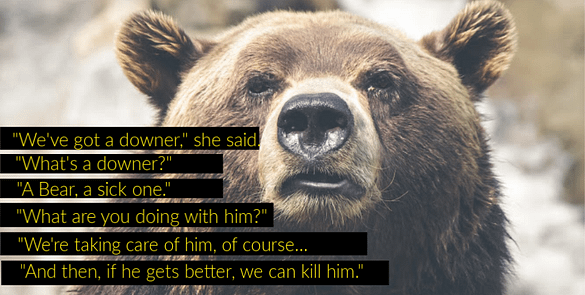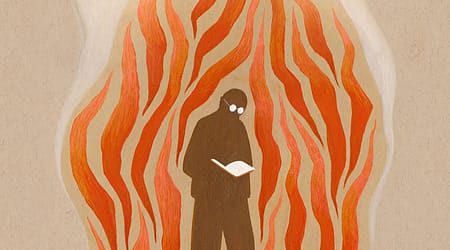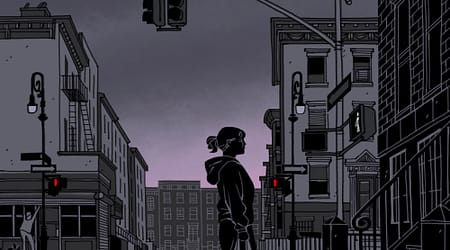Aaron Hicklin reviews The Feral Detective, in which Jonathan Lethem conjures Burning Man if it was directed by Hitchcock.
On the penultimate page of his pacy 11th novel, The Feral Detective, slick-tongued protagonist, Phoebe Siegler, touches the umpteenth nerve ending of Lethem’s urbane, metropolitan readers. “I wasn’t going back to op-eds and conceptual art installations and Paris Review parties and scrolling outraged updates interspersed with pastry photographs,” she muses to herself. “Better no world than that one, sweet as it had been. It was gone.” It’s a neat coda to Lethem’s ambitious attempt to examine, and frequently eviscerate, the primitive call-response mechanism of the Trump presidency, and the sense of impotent rage it perpetually engenders. Phoebe, of course, is a stand-in for the reader—hollowed out by the outcome of an election she didn’t see coming, and left questioning the privileges she once took for granted.
Although nominally a detective story about a search for a young woman, The Feral Detective is a story of our national breakdown told through Phoebe, far too savvy a hero not to realize that the subject of her western quest is a smokescreen. What she’s really looking for is not her friend’s wayward daughter, but an understanding of who she is once stripped of all the old certainties. Directed to Charles Heist, a detective who specializes in locating runaways, Phoebe finds herself catapulted into a primal society of technophobes and conspiracy theorists hidden in the California desert, beyond the highways and malls that insulate the rest of us.
Lethem loves to use real locations, which amps up the fever-dream quality of his stories. We know this world, but we also don’t. Is there really a café in Claremont, California, called Some Crust? Yes, there is. So are there also groups of feuding male and female survivalists called The Bears and The Rabbits? You are fully prepared to believe that there are. The Rabbits, who are all women, are communal and vegan, and look after one another. The Bears are white guys with beards who might otherwise pop up at Trump rallies wearing MAGA hats. Here they engage in primal fights for supremacy. As with The Lord of the Flies, they reflect what happens to societies that have forsaken their moral compass. Before long, Phoebe is collecting sagebrush and chowing down on cactus tamales. Her phone has become “some kind of glinty talisman, vestige of a former life or world.” There’s a double murder, too, and a brutal desert fight between her feral detective savior and the king of the Bears, a man called Solitary Love. A climactic scene involves a Ferris wheel in the desert, that summons Hitchcock directing Burning Man. In that case, a near-mute, feral child called Melinda saves the day.
It’s a lot to take in, but the journey goes quickly, and Lethem hasn’t lost his facility for lovely similes. When dogs tails wag they work “like outboard motors.” Some chapters are shorter than a page, a few are only a line or two in length. The ending is abrupt. Yet Phoebe, a tender-hearted ball of fury, and a proxy for the reader, holds this narrative stew together. As she observes more than once, “we live in a fucking insane world.” She wants answers that almost no-one can provide: Who are we, and how do we make it through this catastrophe to the other side? No matter how much we might want it, not even Lethem can answer that.






